
Kareemah Abdusamad (left) helps Ashley Cruz, a 7-year-old who attends Eastway Elementary, read a children’s book during the after-school program on Nov. 7. (Staff photo by Rob Gourley)
South Eastern Efforts Developing Sustainable Spaces (SEEDS) has been teaching gardening to the Durham community since 1994, but, here lately it is the after-school program that has become the focus of the organization’s work.
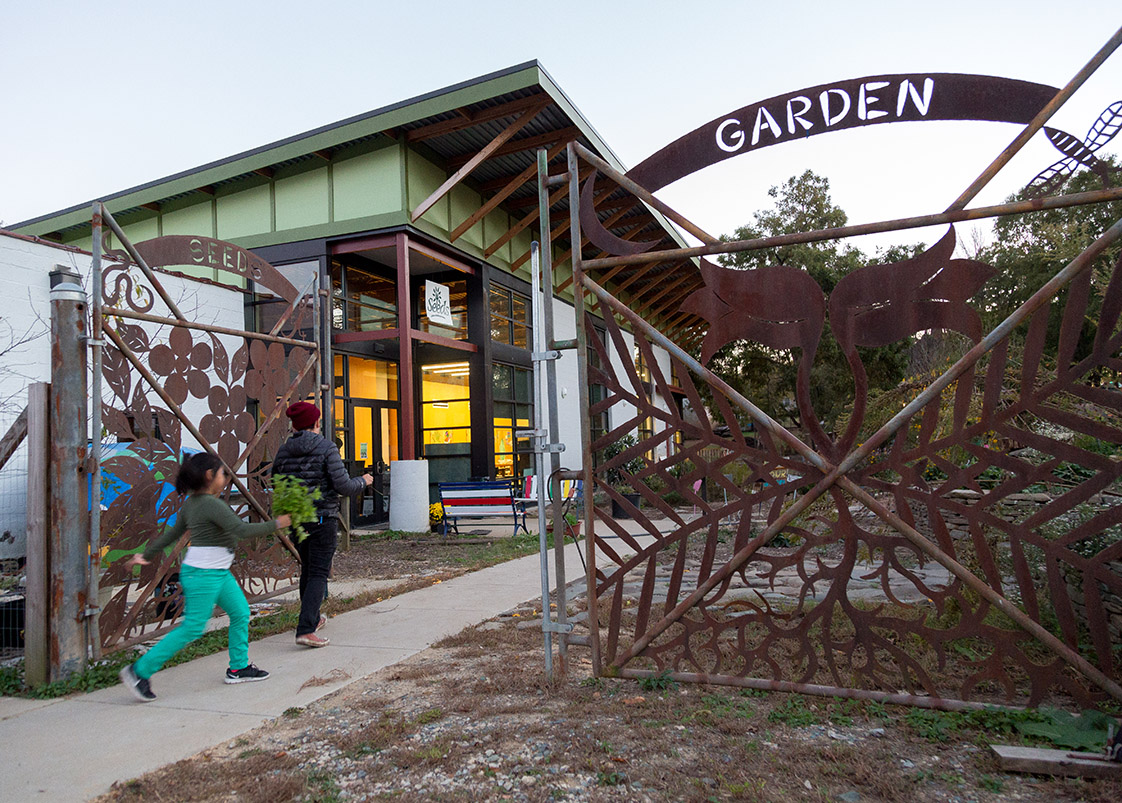
Heidy Lopez and Leslie Simonds walk through the front gate of the SEEDS garden during the after-school program after picking lemon balm plant on Nov. 7. (Staff photo by Rob Gourley)
According to Program Manager Leslie Simonds, the after-school program spun out of the community gardening program at SEEDS. Gardeners would bring along their children and grandchildren who would run around the garden, and eventually someone saw the potential for an after-school program.
The program runs August through June and has a loose garden-based curriculum with monthly themes, according to Simonds. This month the focus is on ecology, horticulture, interdependence, companion planting and the impermanence of art and science.
“It’s very, very, education-focused and has a big academic focus,” Simonds said. “We draw things in from what they’re learning in school, and we do homework time and we do literacy with them. We have some kids who we take a little bit more time, and keep them in from going to the garden to do some literacy and work on their vocabulary and reading skills.”
Though the program has an educational focus, the facilitators at SEEDS try to make things fun and creative for the children. Each Friday the children use the teaching kitchen at SEEDS to cook with food and herbs they’ve harvested from the garden.
According to Simonds, cooking is one of the children’s favorite things to do while at SEEDS.
“They love tasting things from the garden, even if they’re like ‘ugh I don’t like that.’ There’s always this clamor to want to taste things,” Simonds said. “They are tasting plants that they planted like a month ago. I think that’s really exciting for them too.”
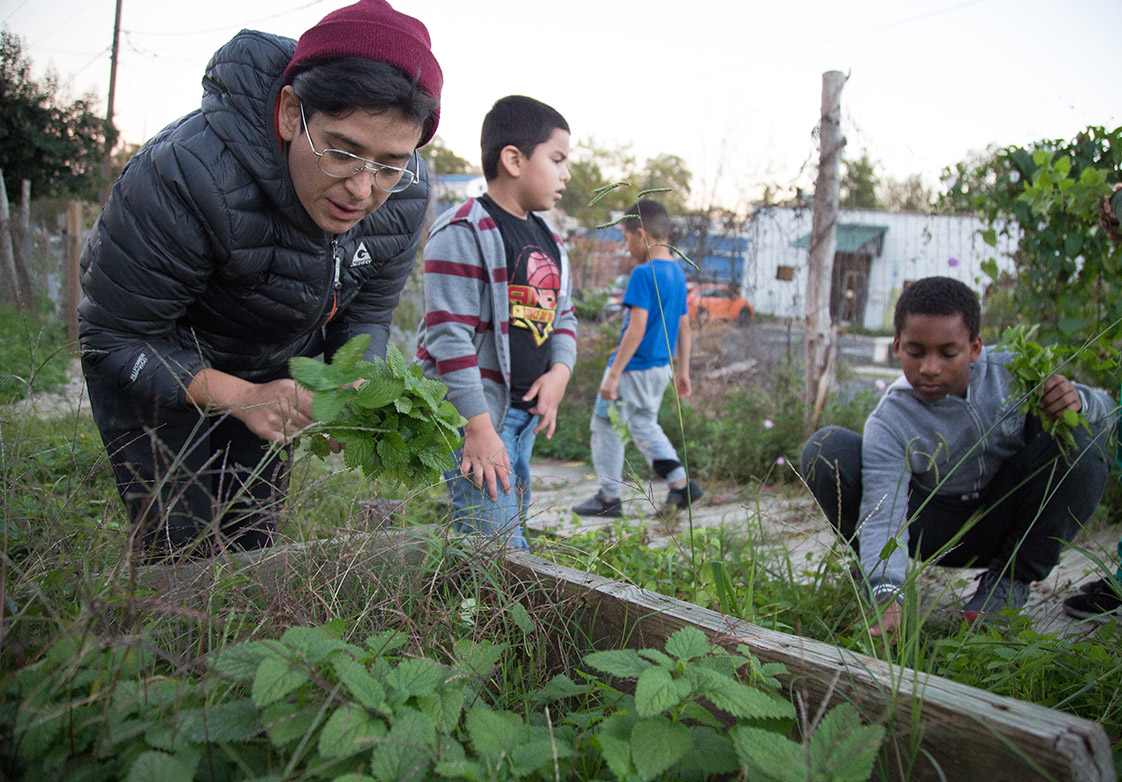
Leslie Simonds, the Programs Manager at SEEDS, picks lemon balm with Adonis Leon, Bayron Rodriguez and Nyles Perry in the evening on Nov. 7. This lemon balm has a sweet, citrus smell and will be used to make tea. (Staff photo by Rob Gourley)
Children’s Program Manager and Lead Educator, Kareemah Abdusamad agrees, “Oh, they’re so cheeky. We have stevia, that sweetener,” she said. “So they’ve learned how to roll it with mint, and then they chew it and they say they’re making their own bubble gum.”
But it’s not just the adults at SEEDS who introduce new concepts and lessons into the program.
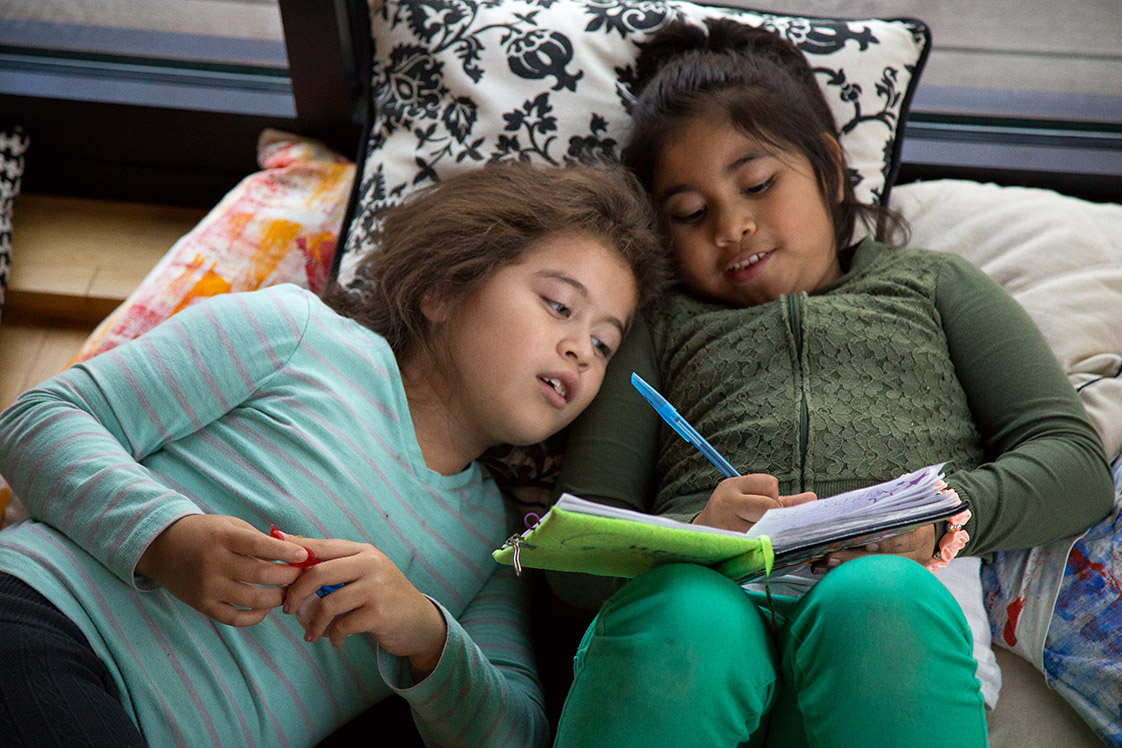
Marializ Martinez (left) watches Heidy Lopez (right) as she practices writing names in her journal while laying on pillows at the SEEDS after-school program on Nov. 7. (Staff photo by Rob Gourley)
Nine-year-old Marializ Martinez suggested that the children receive badges when they do something well.
According to Abdusamad, Marializ came up with the idea of receiving badges while in the garden one day and described herself as “the best weed-puller,” a title for which she thought she deserved a badge.
The children receive badges for doing things exceptionally well, such as reading seed packages or knowing how deep to plant a particular seed.
“We’re constantly bringing into the garden all of these North Carolina standards,” Abdusamad said. “But we do it in the garden. We do a lot of measuring, because you have to measure to know how many seeds to plant. We do a lot of literacy. We do a lot of social studies. You certainly can’t grow some things in North Carolina.”
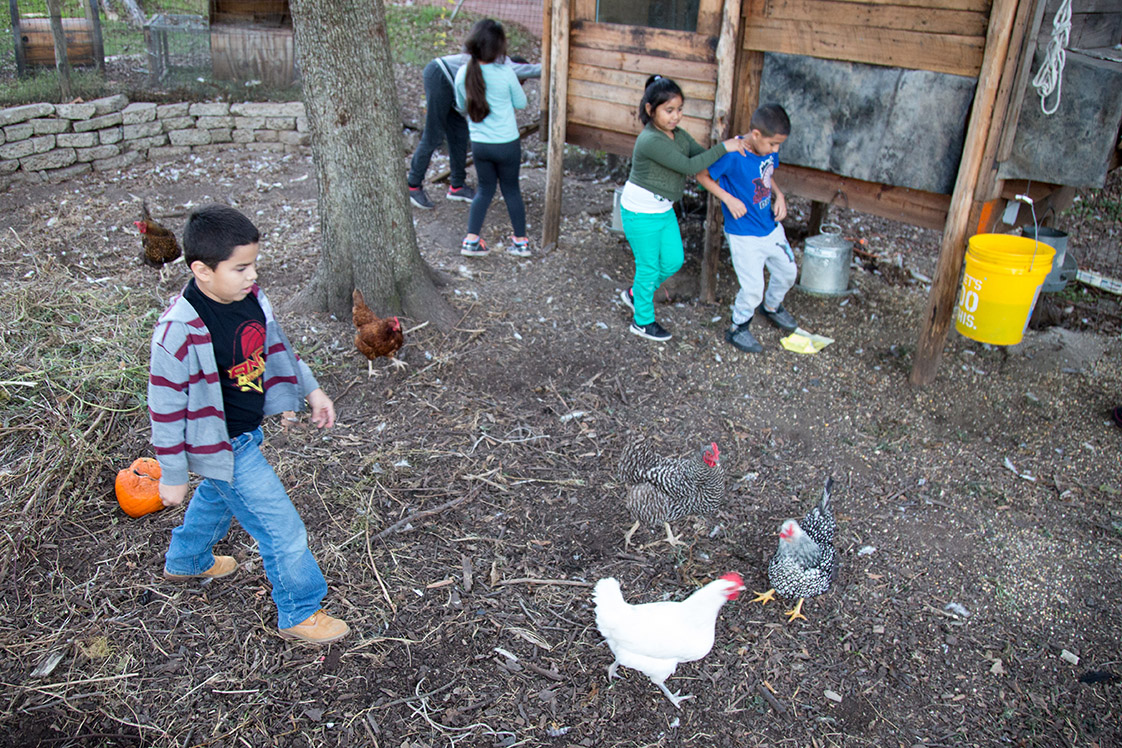
Adonis Leon follows chickens around the pen while Nyles Perry, Marializ Martinez, Heidy Lopez and Bayron Rodriguez check out the chicken coop at SEEDS during the after-school program on Nov. 7. (Staff photo by Rob Gourley)
“So children are learning that. They’re internalizing that. They’re not thinking of it as social studies or math. They’re just thinking of it as working in the garden, and all of that is extracted out of it,” she said.
The badge system is not the only idea that Marializ has come up with at SEEDS.
“Tell Me Something Good” is another brainchild of the precocious fourth-grader. Each day during snack the children and adults must tell the group something good about their day.
For some of them, that means looking forward to things in the upcoming days.
“My something is that, this weekend, I’m going to stay with my dad. And we’re going to spend time together. My dad said he is gonna buy me a toy at the toy store,” Marializ said.
The program also tries to involve the parents as much as possible. For Abdusamad it is important to build community with the parents.
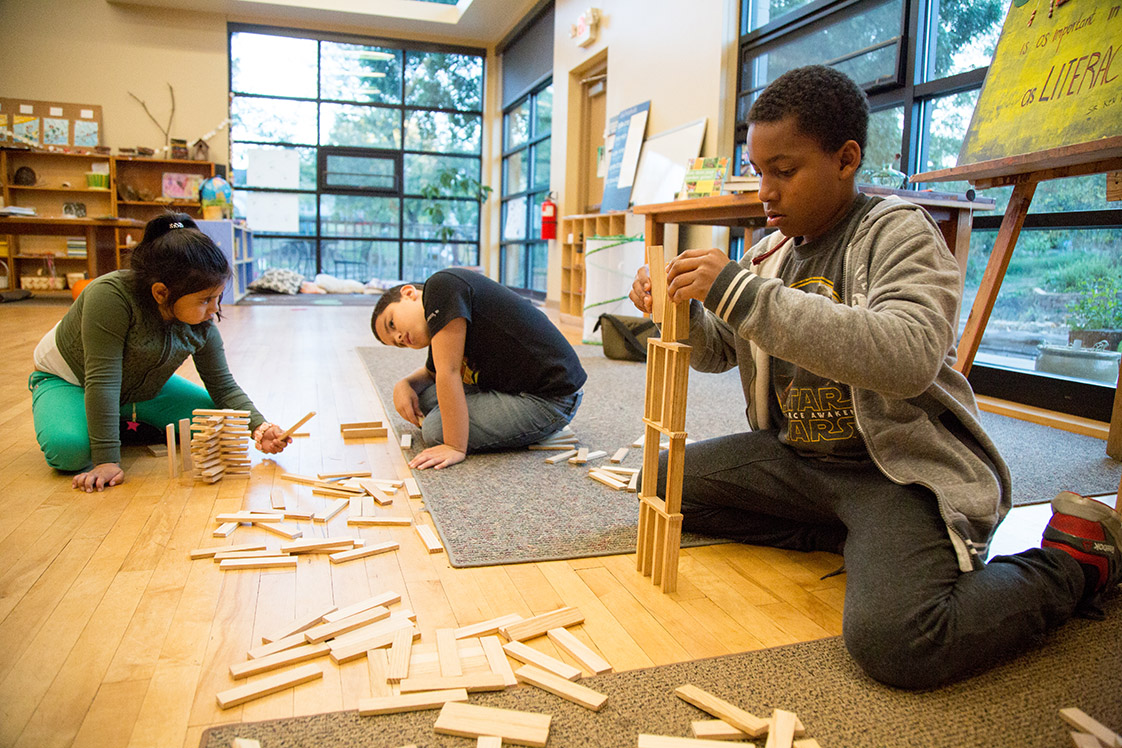
Heidy Lopez, Adonis Leon and Nyles Perry (left to right) all try to build the tallest tower from blocks during the afterschool program on Nov. 7. (Staff photo by Rob Gourley)
“We create space for the parents to be here, because our parents are working-class parents. These are school students. So, when we harvest something that’s too much we make sure that we give it to the children, slash to the parents.”
According to Abdusamad, if there is a down side to the program, it is that the hours aren’t long enough.
“For me, I think that one of the constrictions is that we can’t have an all-day school. And, really, that more children can’t be exposed to this kind of environment,” she said.
“For the most part, these children have developed a love of the land. They’ve been here longer than I have,” Abusamad said. “They have history within here.”
Hellen Shore says:
Outstanding! Keep up updated on the SEEDS initiative. The writing and images here are rich…